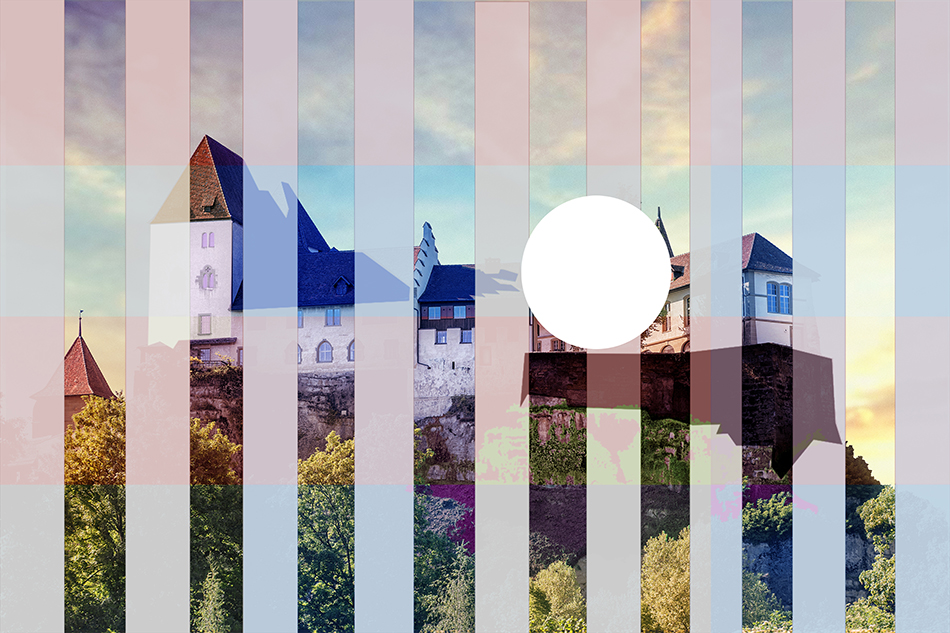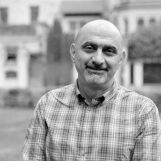Being a Burgdorfer

„ Have you seen the Castle?” the receptionist asked me at the front desk of the office of the Salvation Army in Burgdorf. I would come by this office at least once a month to sign a checklist, confirming our presence in the canton, where we were housed as refugees. At that time, my family and I were housed in Langenthal. The regional office was in Burgdorf, 24 Kilometers from Langenthal, so we had to travel once a month there in order to sign this specific paper. This task was given to me on behalf of the rest of my family. The receptionist asked me how I found it living in Langenthal, after having been transferred for more than a year throughout different camps. I instantly replied that of all the cities, towns, and villages I had visited the previous year, Langenthal was for me the most beautiful one in the whole of Switzerland. Then the receptionist, who happened to be a Burgdorfer, asked me with an obvious smile about the Burgdorf castle.
I could understand his question (the motivation actually). As a Damascene, who can’t easily listen to a visitor praise something about Aleppo (for example) without interfering to point at something unique in Damascus, I very much behave the same. It’s a “tradition” among the old cities’ inhabitants in Syria. So, I concluded, it’s normal for old cities’ inhabitants, in the whole world, to “understand” each other. But what the receptionist himself couldn’t understand and I didn’t have the time to explain, is how it happened to me to totally fall in love with a city that I’d hardly housed in for just a couple of weeks!
It had started as a game and ended as a love story. Joumana, my wife, and I had known Langenthal for seven months before we were placed there. The Aarwangen camp, our last camp before being housed in Langenthal, was only 4 kilometers away. And so, it became the destination of our daily walks to take some time off from the camp. During these months we started to develop a game to alleviate a little bit the overwhelming feeling of exile. It’s not easy to lose everything at once, and this’s the case for all those who’ve been forced to leave their homelands and go to exile: losing everything. Even those nuanced details of your daily life, including the surroundings that you used to cross by every day, without stopping just to take a look, suddenly become so dear that you miss them entirely when you find yourself in exile. So, it was necessary to go through this game, and Langenthal is a cozy and welcoming town that entices you to indulge in this kind of „warming“ game. We started to give Damascene names to the streets of Langenthal, and it really worked.
It wasn’t too long before our sons started to hear us talking about new shoes we had just seen in the shoe store on “Al-Shalaan Street”, or about an ongoing argument that had just started half an hour after we left our café in “Aarnoos Corner”. These are the Damascene names we gave to the streets of Langenthal. It was our way of breaking through the void we faced after fleeing our own country, just as we were reaching our fifties. Through this little game, both of us started looking at Langenthal from a different perspective. We were in effect turning it into our new “hometown”.
Two years after the encounter with the receptionist who asked me about the castle, we actually moved to Burgdorf. And here we were not able to repeat the same old game. For Joumana, it was no longer just a game, it was real-life. There’s no more time for games if you want to deal directly with life and be a part of what’s happening in front of your eyes. Spending the whole time remembering your own homeland, and what you’ve lost, can lead to stagnation and in fact, block the everyday experiences of the exile. You don’t have to forget, but you should look forward as well. This way, you’ll have the energy to do both: live and remember. “It is not heaven if you are alone there,” as the Arabic proverb goes. And according to Joumana, if you are looking for a new life, you need to find friends before anything else. And that’s exactly what she achieved. It only took her a few months to rearrange her priorities in our new city and start her own life.
For me, it wasn’t easy to go through this path. As a writer, isolation is a part of my own “deal”. So, I went back to our old game of trying to give Damascene names to the streets of Burgdof, but it didn’t work anymore. And it’s the Castle that spoiled all my old tricks.
Although we have our own castle in Damascus, it doesn’t crouch on a hill to look at you wherever you go in the city, even in the most remote corners. This ubiquitous presence would always remind me that I was no longer in my old city.
When you’re drowning, a straw can be a lifesaver. The refugees are the worst kind of drowning persons. Sometimes they can’t find the straw but keep looking till the last breath. My “straw” had been my “key” to go back to Damascus, even for a shred of a second, while standing in the middle of the Langenthal streets. And yes, there were a lot of “keys” for me in Langenthal. Most of the time, it was in the street corners that these “keys” could be found; in the shop fronts; and even the smiles of the shopkeepers. There were plenty of opportunities scattered around to just ignite the memory and take you back for an instant to the place where you put your sole. But in Burgdorf, because of its castle, it is impossible to find your Damascus or any other city. It’s simply Burgdorf.
I was about to surrender to the feeling of loss and confess that I’m a stranger in a strange place. Then, suddenly, I was able to pick up my own “key” to get in. It isn’t about the similarities in the street corners. It is about something else, something ubiquitous like the Castle itself. It’s in the air, specifically in the springtime. It has the exact same smell and the same touch of the spring air in Damascus. And so, it happened to me while I was walking down the street on a warm spring evening, that I stopped suddenly, inhaling as much as I could of the air and looking around me; my god, I’m in “Al Mazraa Street” in Damascus! I vividly remember walking on “Al Mazraa Street” surrounded by the familiar aroma and warmth. Surprisingly, even the facades of the buildings around me in Burgdorf seemed to take on a shape reminiscent of the buildings in that Damascene Street!
Having recovered my old “key”, I looked up at the Castle. It was lit in different colors so that at that very moment it reminded me of the Eid evening lights in Damascus, lights that announce the beginning of the Eid joy. There is no corner in any street of Damascus that remains without being illuminated with a vibrant and joyful burst of color, reminding everyone that it is the time of Eid… the time of celebration. It was as if the Castle wanted to say: welcome stranger.
Now, having found my way in, I want to meet the receptionist again, just to say: yes, my friend, I see the castle – but the castle also sees me.

